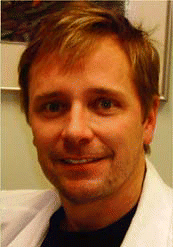Any of the physician members in the BEST ENT Network, as well as collaborating surgical specialty societies, can submit a protocol for a prospective outcomes-based study to a steering committee, consisting of a panel of experts in outcomes research, study design, and methodology, that will review it and make recommendations or changes, if necessary.
Explore This Issue
April 2007Before the launch of any study, there is a significant educational effort by steering committee members to teach others about the development and implementation of evidence-based clinical research projects, said Dr. Witsell.
The Academy has had a number of initiatives, such as the Clinical Scholars Program, to help its members learn the principals of EBM and research study, added Dr. Witsell. Over 120 physicians were trained as part of this program and many of them now form the stable of investigators in the BEST ENT Network.
 We are seeing a growing number of physicians who understand how research from clinical trials supports their treatment decisions, thus improving their practices and patient care.
We are seeing a growing number of physicians who understand how research from clinical trials supports their treatment decisions, thus improving their practices and patient care.
-David L. Witsell, MD, MHS
BEST ENT Network member physicians have participated in three initial studies-SLEEP (Studying Life Effects and Effectiveness of Palatopharyngoplasty), To TREAT (Tonsillitis Outcomes: Towards Reaching Evidence in Adults and Tots) and NOSE (Nasal Obstruction and Septoplasty Effectiveness)-aimed at evaluating the quality of life (QOL) and health status of various patient populations from multiple practice settings. The newest study, SMILE (Study to Assess the Effectiveness of CeviMeline to Improve DentaL and Oral Health in Patients with XErostomia Secondary to Radiation Therapy for Treatment of Head and Neck Squamous Cell Carcinoma), is evaluating QOL in head and neck cancer patients.
Results from these studies may lead to evidence-based practice guidelines and clinical indicators that are used by both primary and specialty care physicians, and improve the quality of care delivered to patients, maximize the effectiveness of health care dollars, influence health care policy, and educate patients about their diseases and specific therapies.
Michael G. Stewart, MD, MPH, Professor and Chairman of the Department of Otorhinolaryngology at Weill Medical College of Cornell University and a member of several BEST ENT Network steering committees, said, Although we act like a clearinghouse and take on a supervisory role for these ongoing studies, each one has its own champion or principal investigator who takes the reins and manages the actual study.
What sets BEST ENT Network apart from other national academies collecting quality data from their members is that our members are actually participating in distinct prospective trials that have the necessary components, such as IRB approval, a defined sample size, an enrollment period, data collection forms and patient questionnaires, and patients who have consented to be studied and are eligible. We are not simply creating a database, said Dr. Stewart.
Leave a Reply